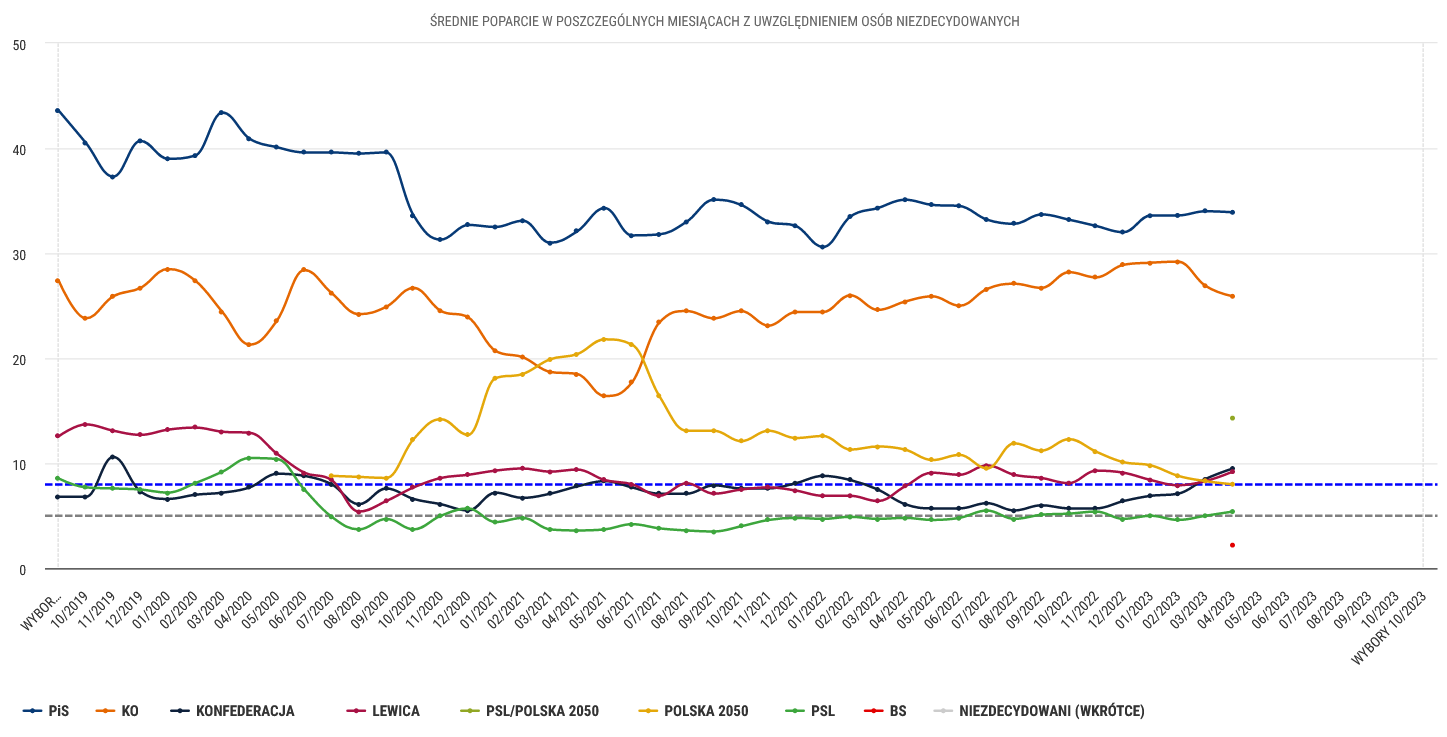A veteran politician from Poland’s main opposition party, the centrist Civic Platform (PO), has announced his resignation from the party, citing its “turn to the left” on issues such as abortion. He indicated that he would be willing to instead stand for a new centre-right opposition alliance at this year’s elections.
Bogusław Sonik, 69, served as a member of the European Parliament for PO from 2004 to 2014 and 2018 to 2019. Since 2019, he has held a seat in the Sejm, the lower house of Poland’s parliament, a position he also occupied from 2015 to 2018. Before 1989, Sonik was an anti-communist activist.
“Today I am leaving PO,” Sonik told broadcaster RMF FM this morning, adding that quitting the party he had belonged to for 22 years was difficult but that he was “not particularly sad” about the decision. He added that he had not discussed his departure with PO leader Donald Tusk.
🎥@SonikBoguslaw (@Platforma_org) w #RozmowaRMF: Dzisiaj odchodzę z Platformy. Rozstania po 22 latach są trudne. Nasze drogi się już ostatecznie rozeszły @RMF24pl pic.twitter.com/4Xiw4ynzBE
— RozmowaRMF (@Rozmowa_RMF) May 9, 2023
“PO has already turned so far to the left, gradually, that our paths have finally diverged,” he explained. His final decision to quit was prompted by Tusk’s announcement, in August last year, that only those who support allowing abortion on demand up to 12 weeks of pregnancy could stand for PO in elections, said Sonik.
That announcement marked a shift for both Tusk and PO. The party, which led Poland’s government from 2007 to 2015, has long included both socially conservative and liberal wings. That led it to avoid taking firm positions on issues such as abortion, the role of the Catholic church in public life, and LGBT rights.
However, since Tusk’s return as leader in 2021, he has pushed the party in a more socially liberal direction. Last year, he announced a “march to modernity” that would include liberalising the abortion law, introducing same-sex civil partnerships, and ensuring a separation of church and state.
Only those who support introducing abortion on demand can stand as election candidates for his party, says opposition leader @donaldtusk.
Decisions on terminating pregnancy up to the 12th week "will be solely up to the woman" under his party's rule https://t.co/W06cpzD3O4
— Notes from Poland 🇵🇱 (@notesfrompoland) September 1, 2022
Last September, Sonik made clear that he would “certainly not vote for the termination of pregnancy [on demand] until the 12th week”. He argued that on such “matters of conscience” it was wrong for Tusk to force a position on his party’s candidates.
Sonik added that around twenty other PO MPs had also made clear that, while they were opposed to the near-total abortion ban introduced under the current government, they favoured instead a return to the previous abortion law, which did not allow termination on demand.
In his interview with RMF today, Sonik said that Tusk had created an environment in which “there is no debate within the party” over such issues and that this had “infringed on MPs’ freedom of outlook”.
Poland's near-total ban on abortion is opposed by most of the public, according to polls, and two opposition parties have called for a referendum to change the law
We look at whether and how such a referendum could be called, and what the outcome might be https://t.co/sQWJUAiOkn
— Notes from Poland 🇵🇱 (@notesfrompoland) April 3, 2023
Sonik also approvingly noted the recently formed alliance between the centre-right Polish People’s Party (PSL) and Poland 2050 (Polska 2050), a centrist group that is more conservative on social issues than PO.
The pair have called for a referendum to decide the abortion law, arguing that it should be decided by the public rather than “politicians or bishops” imposing their views.
“Poland needs the centre-right formation resulting from the merger of Poland 2050 and PSL,” Sonik told RMF today. “A proposal [for me] to run from their electoral lists would be worth considering and accepting.”
Opposition parties Poland 2050 and PSL have formed a coalition ahead of this year's elections.
They say it will offer a "third way, an alternative to a Poland torn in half". It will also help them avoid falling below the vote threshold to enter parliament https://t.co/nNo7MhDnUH
— Notes from Poland 🇵🇱 (@notesfrompoland) April 27, 2023
Parliamentary elections will take place in Poland this autumn, at which the ruling national-conservative Law and Justice (PiS) party is hoping to win an unprecedented third term in office.
PiS is leading in the polls, with support of around 34%. However, such a share of the vote would likely not be enough for the party to win a parliamentary majority on its own. That could open the way for a broad coalition of opposition parties, from the left to centre right, to form an alternative coalition government.
The Civic Coalition (KO) group led by PO remains the most popular opposition force, with around 26% support. The new Poland 2050-PSL alliance has 14%, according to the first polls to include it, with The Left (Lewica) on 9%. The far-right Confederation (Konfederacja), on 9%, could act as a kingmaker.

Monthly polling averages for Poland’s main political parties (not including new Poland 2050-PSL alliance). Source: ewybory.eu
Main image credit: MATEUSZ SKWARCZEK / Agencja Wyborcza.pl

Daniel Tilles is editor-in-chief of Notes from Poland. He has written on Polish affairs for a wide range of publications, including Foreign Policy, POLITICO Europe, EUobserver and Dziennik Gazeta Prawna.




















